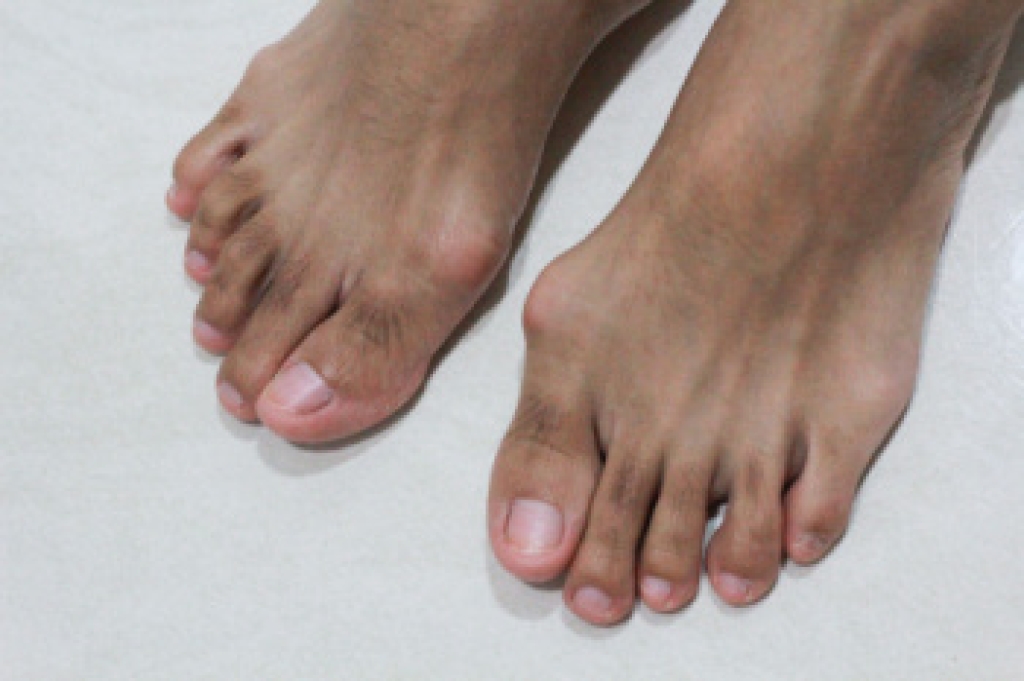
Bunions are bony bumps that form at the base of the big toe, caused when the big toe angles inward toward the second toe. This misalignment can lead to pain, swelling, and redness around the affected area, especially when wearing tight shoes. As the bunion worsens, the big toe may become increasingly deformed, making it difficult to find comfortable footwear. Bunions are often caused by genetics, but factors like wearing ill-fitting shoes, high heels, or having flat feet can contribute to their development. The condition may feel tender or throbbing, particularly after standing or walking for extended periods. A podiatrist can help by assessing the severity of the bunion and recommending appropriate treatment options. Non-surgical treatments include wearing orthotic devices, padding, and adjusting footwear to reduce pressure on the toe. In more severe cases, a podiatrist may recommend surgery to realign the toe and provide long-term relief. If you have a bunion, it is suggested that you schedule an appointment with a podiatrist.
If you are suffering from bunion pain, contact one of our podiatrists of Premier Ankle & Foot Specialists. Our doctors can provide the care you need to keep you pain-free and on your feet.
What Is a Bunion?
Bunions are painful bony bumps that usually develop on the inside of the foot at the joint of the big toe. As the deformity increases over time, it may become painful to walk and wear shoes. Women are more likely to exacerbate existing bunions since they often wear tight, narrow shoes that shift their toes together. Bunion pain can be relieved by wearing wider shoes with enough room for the toes.
Causes
- Genetics – some people inherit feet that are more prone to bunion development
- Inflammatory Conditions - rheumatoid arthritis and polio may cause bunion development
Symptoms
- Redness and inflammation
- Pain and tenderness
- Callus or corns on the bump
- Restricted motion in the big toe
In order to diagnose your bunion, your podiatrist may ask about your medical history, symptoms, and general health. Your doctor might also order an x-ray to take a closer look at your feet. Nonsurgical treatment options include orthotics, padding, icing, changes in footwear, and medication. If nonsurgical treatments don’t alleviate your bunion pain, surgery may be necessary.
If you have any questions, please feel free to contact our offices located in South York, West York, and East York, PA . We offer the newest diagnostic and treatment technologies for all your foot care needs.




